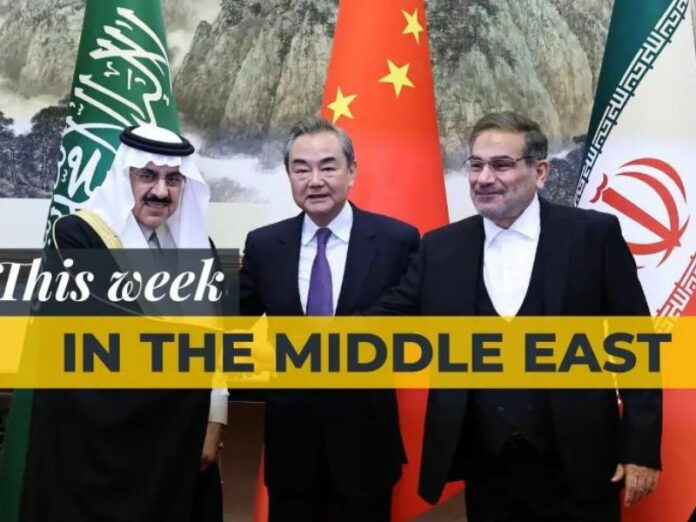Things can change very quickly in the Middle East. Just days before Iran and Saudi Arabia agreed to patch things up and restore diplomatic relations, there had been talk that it was actually Israel that was edging closer to Riyadh.
In fact, much of the friendlier relations, shall we say, between Israel and several Gulf countries can be tied to their mutually shared animosity towards Iran. And yet, seven years after Iran and Saudi Arabia had severed ties, here they were in the same room, announcing a deal to reopen embassies in their respective capitals within two months.
The consequences of this arrangement won’t just play out in Iran and Saudi Arabia, of course, but across an entire region riven by fault lines previously created by the rivalry between Tehran and Riyadh. Will their diplomatic coming together further ease the way for the rehabilitation of Syrian President Bashar al-Assad in the eyes of other Arab leaders?
Will Lebanon, dominated by Hezbollah, now receive more Saudi investment? Will Saudi Arabia feel secure enough to disengage from the war in Yemen, where Iran has supported rebel forces? And will Iran’s own regional isolation, if not end entirely, then at least ease substantially?
The other interesting thing to note is where the announcement was made, namely China. Is this a further sign of a “changing global order”, as one analyst put it? China’s role in the Middle East and North Africa has often been seen as one focused on business, but with this agreement it appears as though China is trying to position itself as an alternative arbitrator to the United States.
Source: Aljazeera.com









